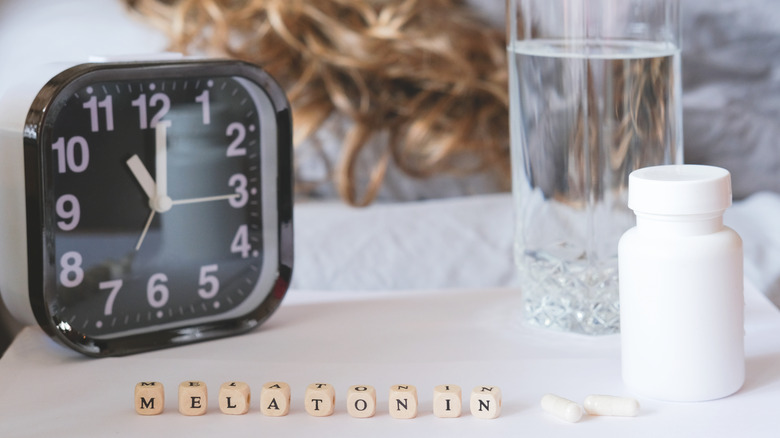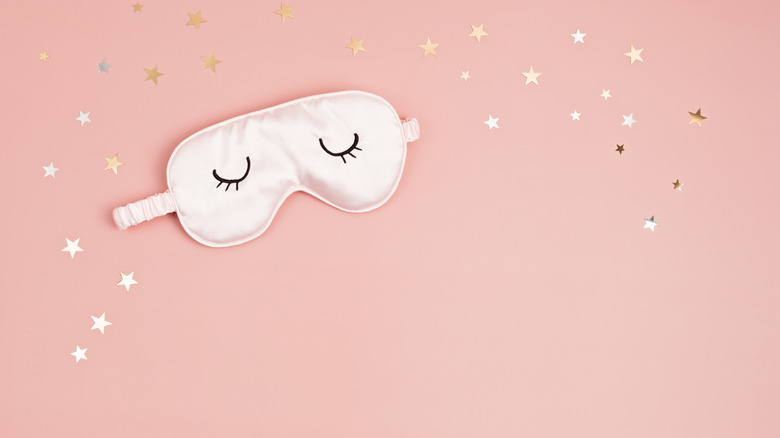What Taking Melatonin Every Night Does To Your Face
Sleep is a precious commodity. And getting enough of it is vital to our health (and sunny dispositions). Unfortunately, that doesn't mean we are all going about our days, feeling blissfully rested from a sound eight hours of shut eye. According to the CDC, one in three adults don't get enough sleep. This is likely why you have already heard of melatonin.
WebMD says melatonin is a naturally produced hormone made by the pineal gland. This unbelievably necessary hormone helps your body out by letting it know when it is time to sleep and when it is time to wake up. Luckily, if you are suspicious your body isn't producing enough on its own, you can find and take melatonin supplements in pills, liquids, and chewable form.
In addition to helping us get the shut eye we so longingly need, melatonin can also help us with our skin issues. Thanks to damaging free radicals, pollution, and UV rays, our skin really takes a hit during the day, shares Elle.
Melatonin-induced antioxidants have proven to be more effective than vitamins C and E
In order to combat these free radicals, our bodies produce healing antioxidants with the help of antioxidant enzymes. Board-certified dermatologist Dendy Engelman, M.D. explains to Elle how melatonin can help our antioxidant allies. "Melatonin stimulates your body's natural production of these enzymes," she says. Just how much do they stimulate? A lot, according to a study published in the Journal of Drugs in Dermatology. This investigation showed that melatonin-induced antioxidants were more effective than those from the more well-known vitamins C and E.
In addition to helping our antioxidant enzyme production, Austin-based dermatologist Ted Lain, M.D. gives Well and Good more details about how this sleep-inducing hormone is good for our face. "Melatonin can act as an antioxidant helping prevent sun damage and protecting from the effects of pollution on the DNA in your skin cells as well as protecting the collagen in the second layer of your skin," he says.
Melatonin and its benefits to our skin appear to be no longer a secret. Topical masks and other skin products have started including melatonin-based concoctions, and according to Elle, when applied topically there is no risk of the side effects such as headaches, dizziness, and nausea that have been linked with taking the oral version. It's only a matter of time before melatonin and the expression "beauty rest" will go hand-in-hand.


